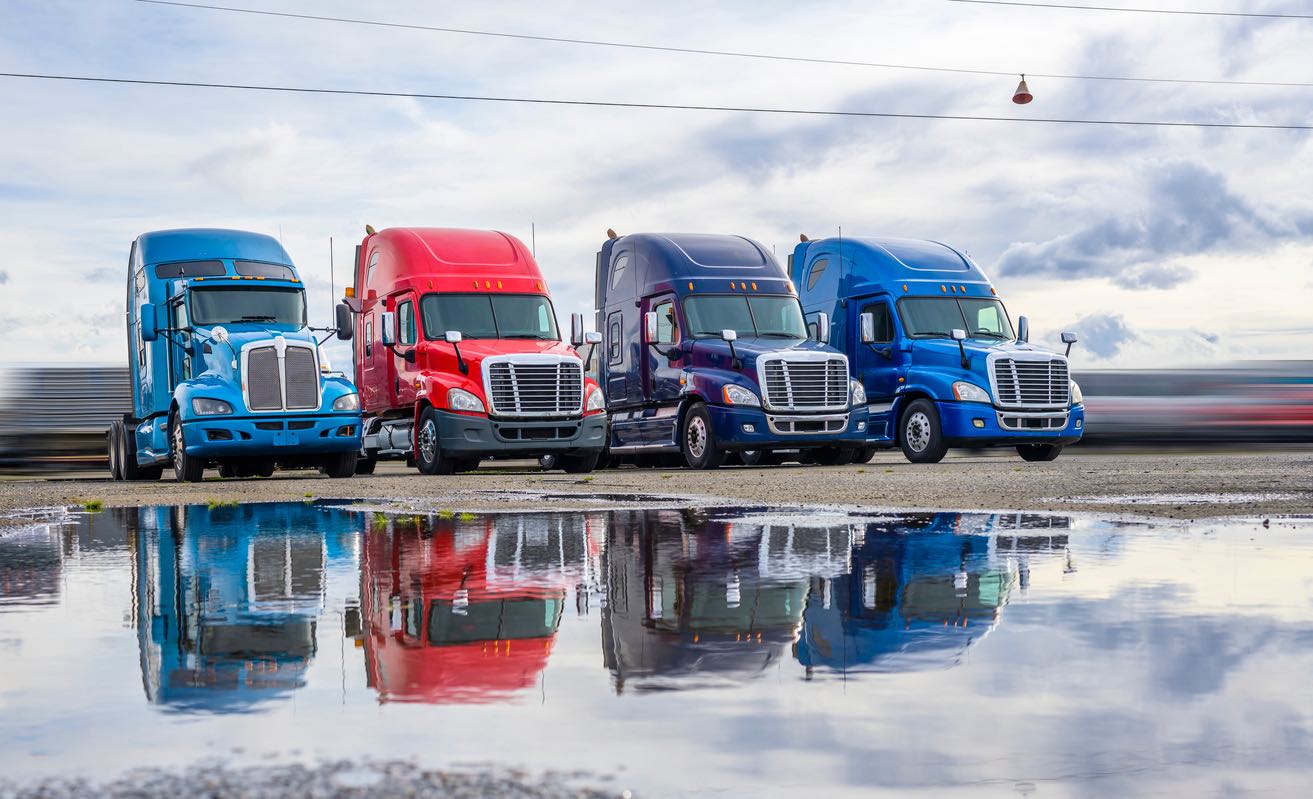The California Trucking Association (CTA) is going toe-to-toe in court with the California Air Resources Board (CARB) over the latter’s ambitious Advanced Clean Fleets policy. This will be a huge judicial fight. This conflict sheds light on the tug of war that is taking place between enacting speedy ecological improvements and the ground realities of the transportation industry. The CARB’s demand for a rapid transition to zero-emission vehicles is at the center of the controversy. According to the CTA, this shift exceeds the capabilities of both the existing technology and the infrastructure in place at this time. This fight is about more than just the law; it encapsulates the larger discussion on whether or not changes should be sustainable and how quickly they should be implemented.
The Core Disagreement: The CARB’s strict deadline, which requires for motor carriers operating in California to begin their transition to zero-emission trucks as soon as possible (perhaps within the next year), is the primary source of tension in this conflict. Critics argue that a schedule that is so stringent does not adequately account for the complexities and difficulties that come with making such a transition. The Commercial Trucking Association (CTA), which speaks for many in the trucking business, has issued a request for a pause and is seeking both a temporary and permanent halt to the ambitious plan of the California Air Resources Board (CARB).
CTA Sounds the Alarm: From the perspective of the CTA, CARB’s ambition is admirable but appears to be unconnected to the practical difficulties of a quick switch to environmentally friendly vehicles. The CTA emphasizes the gap they see between the aspirational objectives of CARB and the realistic capabilities of the current state of technology and infrastructure. The CTA argues that by moving forward, CARB is breaking several levels of state and federal law in addition to simply being overly strident.
Regulatory Overreach?: For the truckers association, the dispute goes beyond practicality. It is argued that CARB may have overstepped legal bounds in its eagerness to promote an environmentally clean future. The claim is that in the drive to greenify the state’s highways, several state and federal regulations have been disregarded or skipped over. The course of this legal action is expected to reveal and elucidate the scope of CARB’s regulatory authority as well as the rate at which practically feasible modifications might be required.

The new Advanced Clean Fleets (ACF) rule is at the center of the growing dispute between the California Trucking Association and the California Air Resources Board (CARB). This law aims to create a more environmentally friendly future when haulage is dominated by zero-emission motor vehicles. But the truckers industry raises questions about this vision’s viability and possible consequences with its legal action. The comprehensive review dissects the fundamental elements of the lawsuit, illuminating the elements of the rule and the concerns of the trucking sector.
Details of the Lawsuit: The trucking industry has presented a strong legal challenge to the U.S. District Court for the Southern District of California, which was firmly filed on October 16. This indicates a considerable pushback. This case is primarily intended to get a “permanent injunction of the ACF regulation.” The California Trucking Association hopes to prevent the enforcement and execution of the ACF rules by obtaining an injunction because they believe that the swift transition may be overly ambitious in light of the existing state of technology and infrastructure.
Components of the ACF Regulation: Four key elements make up CARB’s Advanced Clean Fleets regulation, which is at the center of the current legal dispute. Every clause is a step in the direction of a more sustainable and clean transportation industry:
- State and Local Government Fleets: The regulation mandates the gradual installation of zero-emission vehicles, but only for state and municipal government fleets. This action highlights how important it is for the government to set an example for greener transportation.
- High-Priority Fleets: The rule expedites the integration of zero-emission vehicles and concentrates on high-priority fleets. These fleets, which are frequently essential to the state’s transportation and logistics system, will be vital in determining the speed at which the wider shift proceeds.
- Drayage Fleets: The ACF law also directly targets drayage fleets, which handle goods and frequently operate inside ports. Their inclusion emphasizes how crucial it is to cut emissions in locations with heavy traffic and pollution in order to provide cleaner air in areas that frequently experience pollution.
- 2036 Zero-Emission Mandate: The ACF rule’s stringent requirement to sell 100% zero-emission vehicles by 2036 is arguably its most ambitious provision. This clause highlights CARB’s goal of having a fully green transportation sector, but because of doubts over its viability and suitability for the market, it is still one of the most contentious aspects of the case.

California’s most recent position in the long saga of environmental rules has become a contentious court issue and a possible game-changer. The Advanced Clean Fleets (ACF) law extends beyond automobiles sold in the Golden State in its efforts to promote an electrified, more sustainable future. Its effects are far-reaching, affecting vehicles that simply travel through its borders. Naturally, such bold laws beg the issue of whether California is leading the way in a vital green revolution or going too far in its regulatory overreach.
The Reach Beyond State Lines: The ACF’s regulatory reach is unparalleled, encompassing vehicles that aren’t even marketed in California. It now has jurisdiction over every vehicle that passes its boundaries, which has an impact on interstate trade and transportation. The complaint presents a crucial question: does this rule go too far by ignoring Supreme Court precedents and the specifics of Congress’s intended regulatory framework?
Electric Dreams vs. Ground Realities: Indeed, CARB’s vision of an energized, green future is admirable. With deadlines of 2035 to 2045, the goal is to move fleets in California to 100% electric operation. However, industry representatives raise long-standing worries. Are the electric trucks that will be needed for such an enormous overhaul readily available? More importantly, is the state’s infrastructure for electric vehicle charging sufficiently strong and extensive to support this ambitious mandate, even in the event that the vehicles are accessible? There are still questions, which are the main reason why the sector is reluctant to completely embrace CARB’s green ideal.

The trucking sector in California is at a turning point in the ever evolving transportation market as a whole. There is a great deal of economic strain resulting from the California Air Resources Board’s (CARB) environmental goals and the very real operational issues that truckers must deal with. The implications for the logistics industry and its economic effect are too great to be disregarded as the state works toward a more environmentally friendly future. Let’s examine the main issues that the trucking sector is worried about in light of these new regulations.
The Pivotal Role of Logistics in America’s Economy: The critical function that the logistics sector plays has been increasingly recognized since 2020. The trucking industry, which is the backbone of the US economy, makes sure that commodities are moved across states in a timely and effective manner. But because of the industry’s inherent characteristics and extensive network, it is especially vulnerable to outside forces, particularly when a cloud of regulatory uncertainty is threatening the sector.
Questioning CARB’s Expansive Mandate: The Advanced Clean Fleets legislation that CARB introduced has generated a lot of discussion. Critics contend that CARB could be going beyond its jurisdictional bounds by basically enforcing regulations that apply to vehicles entering California from outside the state as well as those within. The fact that CARB has offered informal assurances regarding the non-enforcement of certain sections due to the ambitious nature of some of these requirements is a clue that the viability of these laws is very doubtful.
The Direct Consequences for the Trucking Sector: The Advanced Clean Fleets regulation is more than simply an environmental mandate; it marks a dramatic change in the way the trucking industry does business. The complaint that the California Trucking Association filed highlights the possible effects that this policy may have on the preferred routes, price structures, and services provided by the industry. The complaint suggests that these modifications might be directly at odds with current congressional objectives, which would further complicate the regulatory landscape.
Gaining insight into these aspects helps one see the difficulties the trucking sector faces. As California works toward a more environmentally friendly future, the real-world effects of such choices on important economic sectors need to be carefully considered.

The ongoing struggle between environmental goals and the very real needs of business operations is brought to light as the California Trucking Association’s legal battle over CARB’s Advanced Clean Fleets regulation draws to a close. This case is not an isolated incident; rather, it embodies the larger discussions about striking a balance between sustainability and economic viability that are occurring all around the country. The way this lawsuit plays out might have a significant impact on similar regulatory initiatives in other states, which could determine the direction of environmental laws as well as the future of the trucking industry.
Ship A Car, Inc. is a brand that has remained synonymous with dependability in the freight and vehicle shipping industry during these times of transformation. They have built a reputation for moving anything with unmatched efficiency, from standard gasoline cars to the most cutting-edge electric vehicles, across the great width of the United States. Their A+ BBB rating attests to their steadfast dedication to providing top-notch services continuously, whether you’re in the vibrant metropolises of New York and Los Angeles or the tranquil locations of Hawaii and Alaska.
In a world full with uncertainty, particularly in the transportation industry, why take any chances while shipping your valuable cars? For peace of mind, pick Ship A Car, Inc. You’re picking a partner committed to making sure your car is delivered safely and on schedule, not simply a shipping service, with their proven track record of quality and customer-focused approach. Though the nature of transportation may change in the future, your car’s trip is always in capable hands when you work with Ship A Car, Inc.
- What is the Advanced Clean Fleets regulation by CARB? It is a collection of laws that mandates the transition of trucks in the state of California to zero-emission vehicles by certain timetables, depending on the type of fleet that is being used.
- Why is the California Trucking Association opposing this regulation? The California Trucking Association (CTA) contends that the legislation violates a number of state and federal statutes, as well as that it is impossible to implement in light of the present state of technology and infrastructure.
- Is Ship A Car, Inc. equipped to handle electric vehicle shipping? Without a doubt! Ship A Car, Inc. is experienced in transporting all varieties of motor vehicles, even the most cutting-edge electric models, in a manner that is both safely transported and speedy.




